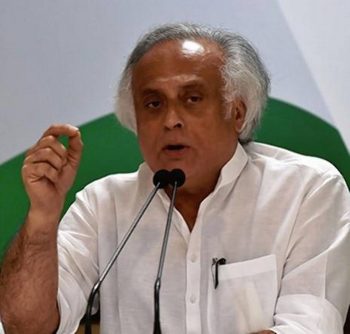Prevention of Money Laundering Act – Department of Revenue 03/07/2019 – Posted in: Daily News
PREVENTION OF MONEY LAUNDERING ACT – DEPARTMENT OF REVENUE
For: Preliminary & Mains
Topics covered: Prevention of Money Laundering Act, Amendments, Bill of 2011, Features
News Flash
The Rajya Sabha MP had challenged amendments to the Prevention of Money Laundering Act from 2015 onwards, through Finance Acts as ‘Money Bills’.
What
- Before 2015, the PMLA was amended through Ordinary Bills as defined under Article 109 of the Constitution.
- Post-2015, the Act has been amended through Money Bills.
The amendments in question are
- Sections 145, 146, 147, 148, 149, 150 and 151 of the Finance Act, 2015
- Section 232 of the Finance Act, 2016
- Section 208 of the Finance Act, 2018
A Money Bill is deemed to contain only provisions dealing with all or any of the matters under clauses (a) to (g) of Article 110(1).
It largely including the appropriation of money from the Consolidated Fund of India and taxation.
A Money Bill is restricted only to the specified matters and cannot include within its ambit any other matter.
The PMLA was enacted for the purposes of preventing the offence of money laundering and the confiscation of property derived from such offence.
Prevention of Money Laundering Act
The act was enacted in January 2003, and come into force from 1st July 2005.
Section 3 of PMLA
It defines offence of money laundering as whosoever directly or indirectly attempts to indulge or knowingly assists or knowingly is a party or is actually involved in any process or activity connected with the proceeds of crime and projecting it as untainted property shall be guilty of offence of money-laundering.
- Prevention of Money Laundering Act empowers the Director of Financial Intelligence Unit-India (FIU-IND) to impose fine on banking company, financial institution or intermediary if they or any of its officers fail to comply with the provisions of the Act.
- PMLA empowers certain officers of the Directorate of Enforcement to carry out investigations in cases involving offence of money laundering.
The PML Act seeks to combat money laundering in India and has three main objectives
- To prevent and control money laundering
- It confiscate and seize the property obtained from the laundered money
- To deal with any other issue connected with money laundering in India.
- The Act also proposes punishment under sec.4.
The Prevention of Money Laundering (Amendment) Bill, 2011
- This Bill seeks to amend the Prevention of Money Laundering Act, 2002.
- The Bills proposes to introduce the concept of ‘corresponding law’.
- The ‘corresponding law’ will link the provisions of Indian law with the laws of foreign countries.
- It also adds the concept of ‘reporting entity’.
- ‘Reporting entity’ would include a banking company, financial institution, intermediary or a person carrying on a designated business or profession.
- The Bill expands the definition of an offence under money laundering. The bill seeks to include activities like concealment, acquisition, possession and use of proceeds of crime.
- The Prevention of Money Laundering Act, 2002 levies a fine up to Rs five lakh. The Bill proposes to remove this upper limit.
- It seeks to provide for provisional attachment and confiscation of property of any person.
- The Bill proposes to confer powers upon the Director to call for records of transactions. It may include any additional information that may be required for the purposes of investigation.
- The Bill proposes to provide for an appeal against the orders of the Appellate Tribunal directly to the Supreme Court within 60 days from the communication of the decision or order of the Appellate Tribunal.
- The Bill seeks to provide for the process of transfer of cases of the Scheduled offences pending in a court to the Special Court for trial.
Source: The Hindu and Other standard sources
You can follow us on LinkedIn and for more updates related to UPSC IAS Preparation, Like our Facebook Page and subscribe our Diligent IAS Youtube Channel

